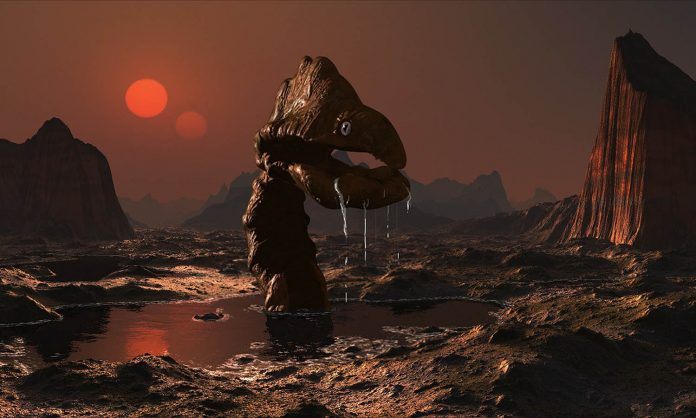
In a post on the SFWA blog, J. Dianne Dotson says that ecology should be part of your worldbuilding for any genre fiction. “Whether a story takes place on another planet, in a mystical land, or in a hellscape of horror, adding touches of realism enhances the world for its inhabitants,” she says. “Using ecology is one way to achieve that realism.”
Ecology is the science that studies the interaction between living organisms and their environment. These principles can help you create a more authentic experience for your characters or add conflict with a hostile environment to their list of challenges. Your characters’ interactions with their environment can also help develop character and create more interesting dialogue.
“Entire societies evolve around unique attributes in their environments,” Dotson writes. Those interactions include nonliving factors, such as the sun, weather, mountains, or depths, and living factors, including animals, plants, and fungi. You should also consider the predator-prey chain in your world. “If your world has creatures, assume that there are predator–prey interactions,” Dotson says. “Where does each creature in your world fit in a food chain? What happens when you take the top predator away? What sorts of population pressures do your characters face?
These unique details can create depth and set your world apart from others, helping your writing stand out from the crowd. “Within cityscapes, for example, heat islands, shade, and wind effects between structures can adversely affect a character’s situation,” Dotson notes. “For exoplanets, exomoons, or asteroids, the habitable zone represents the region in which liquid water can exist, and therefore, it makes possible the existence of life as we know it.”
And this doesn’t only apply to science fiction. Fantasy worlds have the same interactions, even if they are magic-based. “Your fantasy characters must eat, grow crops, find shelter, and otherwise provide for their basic needs within your created world,” Dotson notes. “Does a special herb necessary for medicine only exist on the leeward side of particular stones? Is the dragon only able to consume prey that exists in one specific valley?”
The predator-prey relationship is especially important to horror fiction. “Consider also how your characters can survive in this horrorscape you’ve made, be it an intimate space or a vast realm,” Dotson writes. “Can they breathe? What are their vulnerabilities?”











